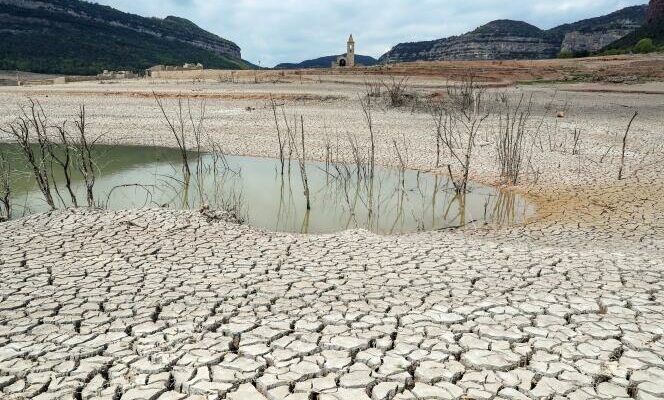The success of the ice rink installed in Girona, in Catalonia, for the 2022 Christmas holidays broke all records, with more than 18,000 visitors. So much so that the city’s exhibition center was considering increasing the ice surface area, already 800 square meters, by 100 square meters this winter. On Wednesday, December 13, the local authorities finally decided to cancel everything and to give up, for the first time since 2006, organizing an activity that required too much water (48,000 liters). A choice made “by responsibility” And “to set an example”, in front of the “current serious climate situation”.
It has been more than three years – thirty-seven months exactly, according to the count made, month after month, by the media and the Catalan authorities – that the region of north-eastern Spain has suffered from a rainfall deficit. In three years, it has rained 25% (500 millimeters) less than what normally falls. During the previous great drought, between 2005 and 2008, the deficit did not exceed 350 millimeters, and it was then necessary to bring drinking water by boat from Marseille to supply the city of Barcelona.
“This is the harshest drought, due to its persistence and intensity, ever recorded in Catalonia”underlined, in mid-November, the director of the Meteorological Service of Catalonia, Sarai Sarroca. “The worst thing is that there is no indication of a reversal of the situation,” she then added.
A month later, effectively devoid of significant rains, the water deficit has only worsened. The region’s water retention basins are at 17.7% of their capacity, an extremely low level never before reached. However, nearly 45% of drinking water consumption depends on it. No doubt in order not to spoil the Christmas holidays too much or in the hope of a miracle, the Catalan government decided to wait until they fell below 16% to decree the situation of” emergency “ for drought. The regional executive will then have to take drastic measures to ensure the supply of drinking water to the metropolitan region of Barcelona and its 5.5 million inhabitants.
New desalination plants
“If nothing changes – and the forecasts are not good – the emergency will be declared in January,” recognized, on December 12, the regional climate action minister, David Mascort. Water allocations for agriculture – which consumes more than 70% of available water – will be reduced by 80%, compared to 40% currently, and by 50% for industry. Everywhere the pressure in the distribution network must be lowered, in order to reduce per capita consumption by 8% to 10%.
You have 55% of this article left to read. The rest is reserved for subscribers.
